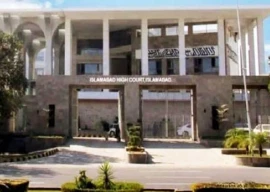
The Asian Development Bank (ADB) has said that Pakistan’s economy faces considerable challenges in the near future, which could lead to a further increase in poverty in the country.
An ADP report, Asian Development Outlook 2011, has termed recent fiscal developments as worrisome – the rollback in oil price rises, a partial increase in electricity tariffs, delays in carrying out revenue-increasing measures, broad tax exemptions for residents of flood affected areas, and continued heavy fiscal support to state-owned enterprises will add to pressures on the fiscal deficit.
Addressing a press conference on the launch of the report, ADB Country Director Rune Stroem said Pakistan’s GDP growth for fiscal 2011 would be around 2.5 per cent, while inflation would remain high due to rising international oil prices.
Stroem informed that the bank’s total disbursements to Pakistan during calendar 2010 stood at $799.18 million – 17 per cent higher than the $683.28 million projected.
Pakistan has made a modest recovery in 2010, while strong fiscal pressure has continued due to an underachieved revenue target, and significantly lower external financing inflows, coupled with higher expenditures, he explained.
The government should implement structural policy measures to support long-term growth by enhancing revenue generation, broadening the tax net, containing circular debt in energy and commodity sectors, and reducing the burden of losses from state-owned enterprises, said Stroem.
He warned that the government’s fiscal deficit of 5.5 per cent during the current fiscal year was unrealistic and would increase further if rectifying measures were not taken.
He called on the government to raise the tax-to-GDP ratio, which stands at 9 per cent, in to double figures in order to generate revenue.
Inflationary pressure is still dominant and could cross 16 per cent in the next few months. The government must address inflationary pressures from both, the demand and supply sides, as global oil price increases risk higher inflation.
Stroem said repayment of the International Monetary Fund (IMF) loan from next year would also build pressure on the exchange rate, and stressed on greater private investment in infrastructure and the manufacturing sector.
“Shortage of energy alone is causing a two per cent reduction in the GDP growth rate; however, it is not the right time to privatise loss-making, state-owned enterprises, and the government should induct professional management to make them profitable,” explained Stroem.
Responding to a question, he said that further loans were dependent on negotiations between the government of Pakistan and IMF.
“There is a link between political reality and economic progress. Overall revenue collection is slipping away compared with the target, whereas total expenditures to the security arrangements are increasing,” said Stroem.
He pointed out that food inflation and fuel costs were increasing gradually, but expected Pakistan’s economy to build on initial signs of recovery, while calling for proper documentation of the economy.
Published in The Express Tribune, April 7th, 2011.













































COMMENTS (1)
Comments are moderated and generally will be posted if they are on-topic and not abusive.
For more information, please see our Comments FAQ